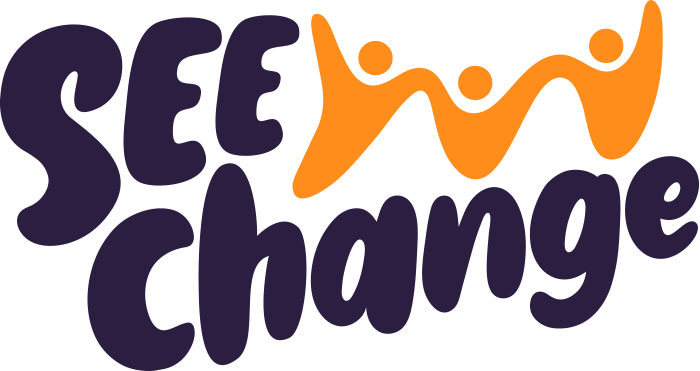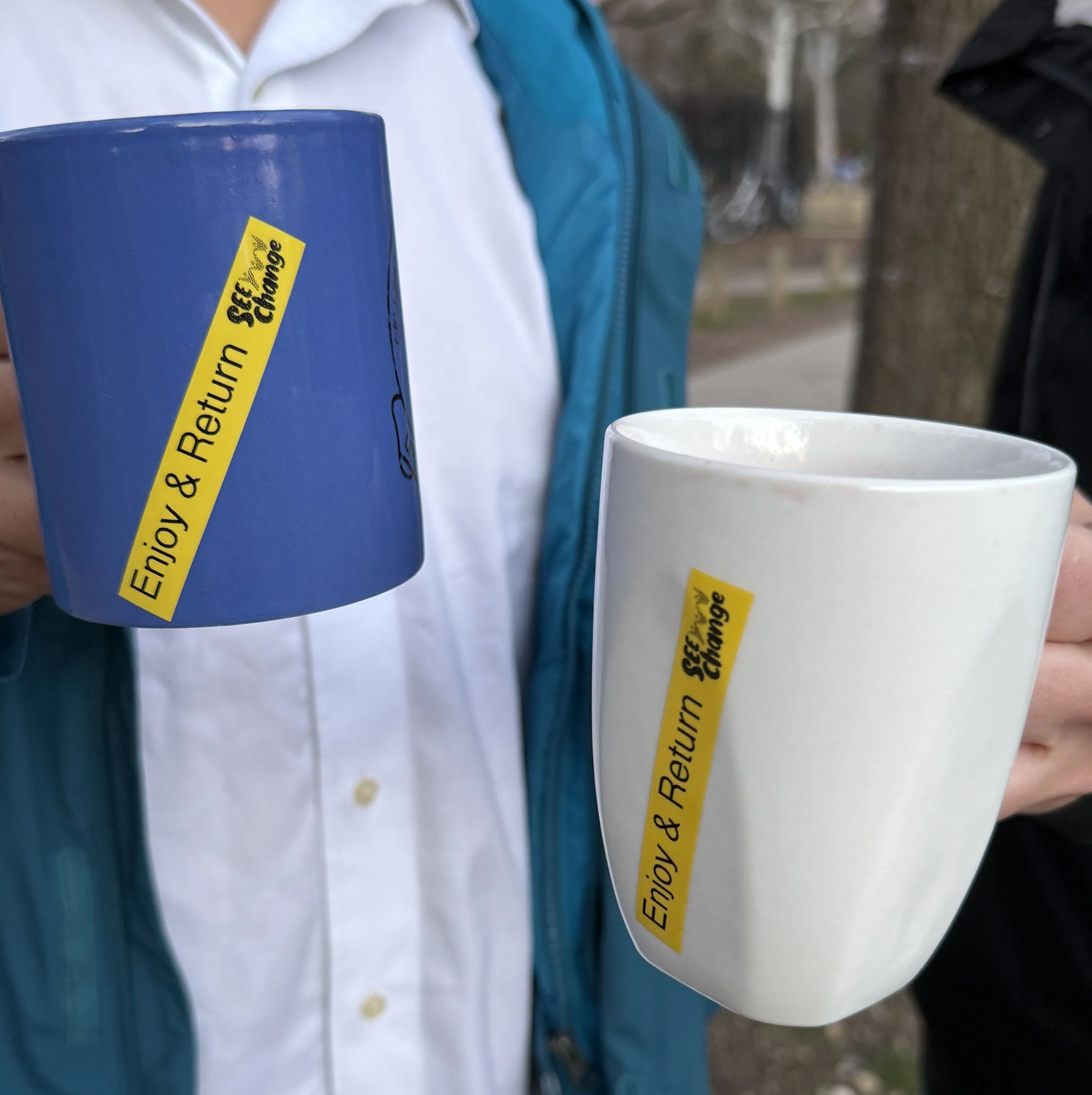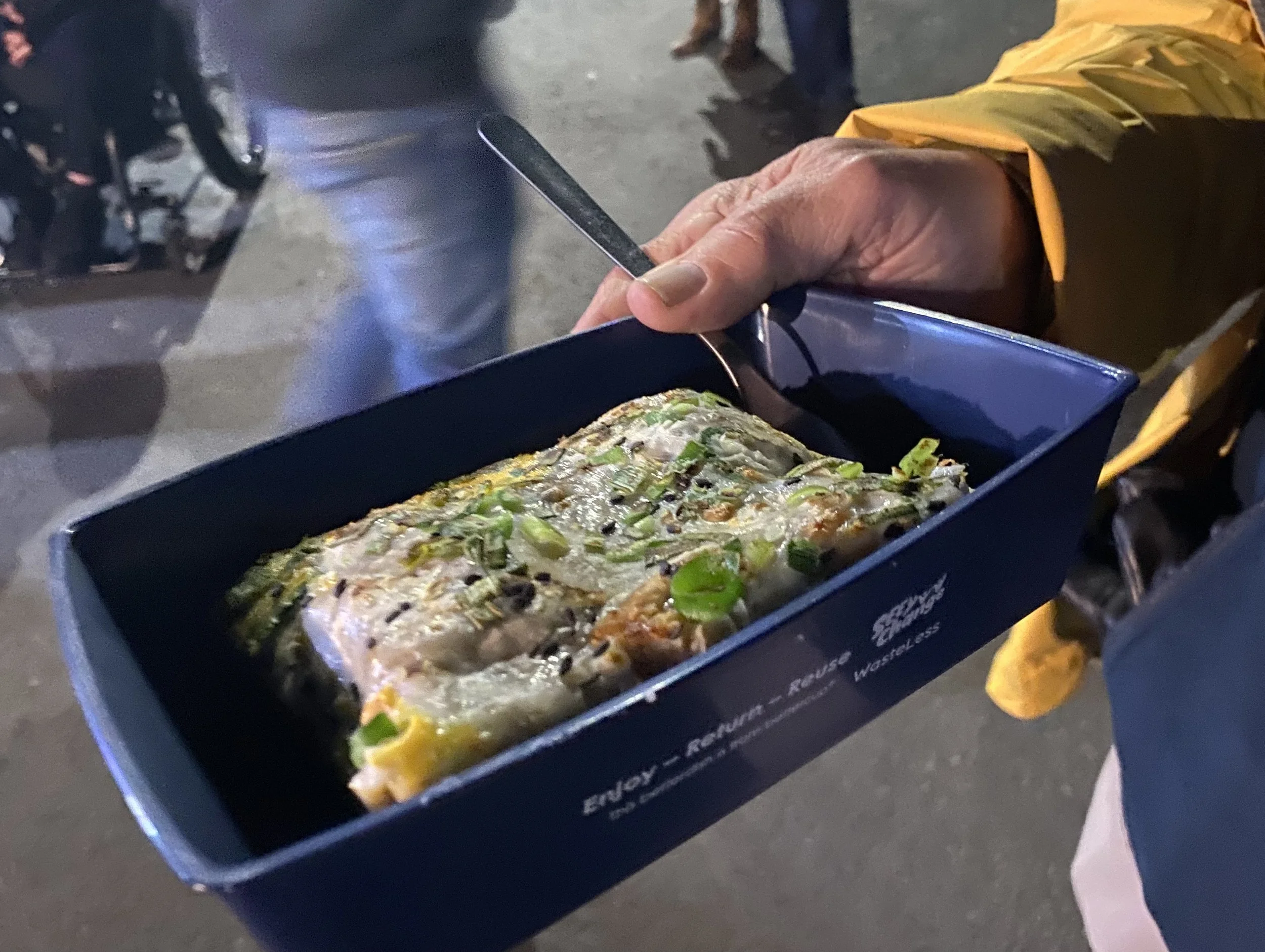Ideas for Reducing Waste at Events
The following ideas are based on the SEE Change WasteLess group’s experience in organising and being part of reducing waste at events in the ACT, where food and beverages (hereafter collectively referred to as food) are available. It is intended that the ideas be applied to any event, small or large. While they are based on current waste and recycling provisions in the ACT, they should be applicable to other locations, depending on local government requirements. Be aware that government practices and requirements change, so event organisers are advised to check on current provisions in your area.
Our emphasis is on reducing all types of waste altogether, and raising awareness of ways in which all participants can incorporate the ideas into their daily lives. The following dot points are intended for quick reference, with more detailed explanations later on this webpage. The ideas can be adopted in part or full, depending on volunteers on the day/s of the event, budget, etc.
Planning and preparing
Start these well ahead of the event.
Locate an enterprise that will accept organics to avoid that waste going to landfill. Ask what they will accept in addition to solid food e.g. paper, wood, bamboo, bioplastics – this will depend on the composting arrangements.
Provide reusable items for patrons to borrow and return - Swap and Go - or to pay a refundable deposit for a container.
Talk to your food providers and obtain their agreement to serving into reusable containers provided by the customer or event organiser;
Ask your providers of cool drinks to serve drinks, when not into customers’ own containers, in recyclable - not compostable - containers. The ACT does not have an industrial composter, so be alert to plastics which claim to be “compostable”. See our compostability article for explanation of the differences.
In all promotional material distributed before the event, encourage attendees to bring their own (BYO) water bottle, hot or cold drink cup, plate or bowl, cutlery (reusables).
You may provide washing facilities for reusables.
Support material such as signage (corflute boards), water units, container deposit scheme bins, tear-drop banners, A-frame signs and more, can be borrowed from ACT Government. Register your event and a catalogue of items is available for you to choose the items you might need. Refer here
Add physical examples or images to the ACT Government corflute signs to show food service items that will be available at the event.
Group bins (recycling, organics, 10c deposit, landfill) into bin stations - as many as possible throughout the grounds. Volunteers at bin stations have proven to be welcomed by patrons and result in reduced bin contamination.
Contact the SEE Change WasteLess group (wasteless@seechange.org.au) who can provide further advice and assistance on reducing waste at an event. The SEE Change WasteLess group can provide reusable mugs, bowls and cutlery for small events.
Bring their own
The following provides a guide on what you might include in pre-event information – feel free to use and change.
Promotional material: “At {event name} we are aiming to reduce waste going to landfill. You can help us by bringing your own water bottle, mug, plate/bowl and cutlery. There will be a wash station where you can wash your BYO items.” Include the last sentence if organisers provide a wash station.
The Food Act 2001 (ACT) and the Food Standards Code allow the use of BYO containers in the ACT. For more information, see here. Stall holders have the right to refuse to use BYO items. Patrons should make sure their plate or cup is clean and suitable.
Reusable food containers
In addition to encouraging BYO, another strategy is to provide to stall holders whatever reusables you are prepared to organise, and encourage vendors to use them for customers. Some estimate that fewer than 30% of event participants are likely to bring their own, so providing reusables helps reduce waste.
By this strategy, the customer returns the used container to collection points (suggest water-proof bins or baskets) throughout the area. Cups, cutlery, plates and bowls could be hired or a reusables library established.
To help ensure that reusables are returned, events might charge a refundable deposit, particularly for alcohol. For example, when the customer first buys a drink, they pay an extra charge (e.g. $5) for renting the glass. When they want another drink, they take their glass back and are provided with another for their next drink. The used glass should be washed in an industrial dishwasher. At any time, the customer can get their $5 deposit back.
Washing of reusable items could be done
At the event OR
After the event.
To wash at the event, a wash station needs to be provided, along with volunteers to collect, wash and recirculate reusable items. The wash station may be a kitchen at the establishment, or a simple system with bins to scrape, pre-wash, wash and sanitise with drying. This facility would also benefit any event participant who has their BYO items and wants to wash them. The ideal would be to use an industrial dishwasher.
If items are to be washed after the event, more reusables would be needed as they will be used only once. However, this negates the need for a wash station on-site, and requires fewer volunteers.
Recyclables (usually yellow lid bin)
crunchable plastic packaging (usually food-related);
plastics with the triangle symbol containing the number 1, 2, 3 or 5;
non-plasticised paper and cardboard;
most glass such as bottles and jars – NOT drinking glasses
Organics (usually green lid bin)
It is important to check with the organics bin collector on what they will accept and adjust signage/instructions for all bins accordingly.
Will typically accept all solid food
May accept bamboo or wooden cutlery; paper napkins, paper plates and towels; cardboard; compostable cups; bio-plastics.
Some examples
The following examples show how events have implemented reusables successfully.
Event A encouraged all patrons to bring their own water bottle, hot drink cup, plate and cutlery. They found that it reduced the quantity of disposable single use items by 20%.
Event B in their first year, introduced reusable hot drink cups. They had washing facilities, and it was so successful that in the second year they hired reusable plates.
Event C purchased reusable wine and beer glasses and made them available with a refundable deposit of $5. They found they lost less than 10% of their glasses.
Event D provided reusable plates, bowls and cutlery. They also had reusable cups for hot drinks and reusable plastic wine and beer cups ($5 deposit). They had an industrial dishwasher. All vendors were required to provide food and drink using the event’s or customers’ reusable items.
Bin Stations
It is inevitable that waste will be generated at any event. Event organisers can try to reduce the amount of incorrect material (contaminants) being placed in the wrong bins by grouping bins together, which will demonstrate commitment to environmental ideals and may save waste bin collection costs for the organisation.
The following are waste disposal bins which would be provided at each bin station.
10c deposit recyclables (usually government-provided mauve bin)
aluminium and steel beverage containers; plastic beverage bottles; juice poppers (as long as they have a 10c deposit symbol on their side)
The advantage of collecting these separately is that the event organiser can receive proceeds of the Return-it scheme
Landfill (usually red lid bin)
All items which cannot be put in any of the above bins e.g.
firm plastics not numbered 1, 2, 3 or 5;
soft plastics (usually food wrapping);
broken glass and ceramics;
single use coffee cups and lids.
The aim is to reduce this waste as much as possible.
By placing bins together, patrons will be less confused about where to place items. If event-supplied reusables are used there should also be a box or crate near the bins.
Given that rules can vary about what goes in each bin, it is important to clearly label what goes where. For example, disposable coffee cups must be placed in the landfill bin, unless compostable coffee cups are acceptable in the organics bin. While signage can be borrowed from the ACT Government, we have found that attaching examples or images to the signs of items used by stall holders, helps patrons to match what they have in their hand with what is on the sign.
Greatest success is achieved where all vendors use the same material of glasses, cups, cutlery, plates and bowls. Success is also increased where volunteer ‘bin monitors’ can be stationed at bin stations, or volunteers patrol bin stations as often as possible, changing items into correct bins, using long-handle pick-up tools and gloves.
Thank you for considering waste reduction at your event, and we wish you all the best. If your experience suggests that these ideas can be improved, please let us know – our email link is below. Hopefully we will all be part of change for the better.
Resources
Email: wasteless@seechange.org.au
ACT Government sustainable events team
Eco Party Kit Canberra – cups, plates and bowls for 30 people – ideal for small events
Better Cup – Provides reusable cups and food dishes at major events




